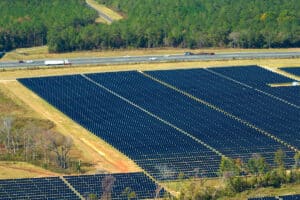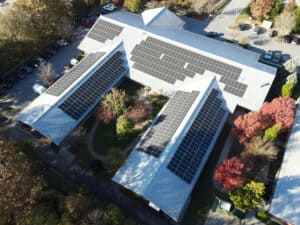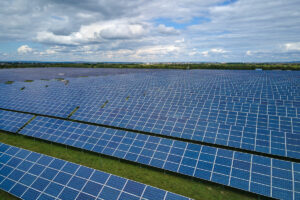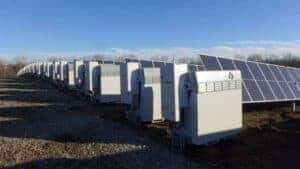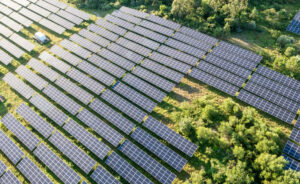As the need for renewable power increases with a global shift to combat climate change, many are finding success in utilizing biodigesters to improve sustainability. A biodigester utilizes organic waste to produce fertilizer and biogas anaerobically, providing nutrient-rich soil from organic materials that would have been discarded.
What does a biodigester do?
A biodigester system involves an intake of organic waste to digest and create fertilizer and biogas. This process is anaerobic, meaning it takes place without oxygen, and the bacteria that decompose waste in turn produce methane, or biogas. A biodigester typically consists of airtight containers made of a high-density polyethylene, with diluted water and organic waste within to continuously flow and ferment by microorganisms. The result of this process is organic, pathogen-free fertilizer rich in nitrogen, phosphorus and potassium.
Read: What is Agrivoltaics?
These systems can be successfully implemented in any rural or urban area with sufficient space and a large number of animals to generate at least 100 kg of manure a day. Biodigesters are particularly useful on farms with livestock as a source of organic matter, cultivation areas on farms where fertilizer can be used and living spaces that can use biogas. For example, the methane produced can be used for domestic activities like cooking and heating water, rather than the gas entering the atmosphere. Further, biodigesters are often implemented on farms that need to improve soil fertility or the quality of life of the producers.
Read: 3 Benefits of Agrivoltaics for Farmers & Agricultural Managers
Benefits of biodigesters
One of the main benefits of biodigesters is their ability to reduce the amount of methane emissions from organic waste. Methane is a potent greenhouse gas that contributes significantly to climate change. By capturing and using the methane produced in a biodigester, we can help mitigate the negative impacts of climate change. These systems also have the potential to reduce the amount of waste that ends up in landfills, where it can release methane and other harmful gases into the atmosphere. In addition to their environmental benefits, biodigesters can also provide a source of renewable energy and help to reduce reliance on fossil fuels.
In addition, biodigesters offer many economic benefits, both on a small scale for households and on a larger scale for farms and industries. On a small scale, biodigesters can help households save money on their energy bills by providing a source of renewable energy in the form of biogas. Biogas can be used for cooking, heating, and lighting, reducing the need for electricity or other fossil fuels. On a larger scale, biodigesters can provide a source of income for farms and industries through the sale of biogas and the fertilizer that are produced.
Biogas can be sold to utilities or used to generate electricity that can be sold back to the grid. Fertilizers produced by the system can be sold to other farmers or used on the farm or industry’s own land, improving soil health and productivity. In this way, biodigesters can help to improve the economic viability of farming and other industries, contributing to the overall economic development of a region. In summation, utilizing these systems can be an important tool in the transition to a more sustainable and resilient society.
Read: How USDA Grants and Loans Can Fund an Energy Project
Interested in implementing renewable energy solutions?
As many organizations and corporations are turning to renewable energy to promote sustainability, now is the ideal time to implement renewable energy solutions for your organization. Partnering with EnergyLink will expedite the process of designing, building and funding energy solutions across multiple project scales for your organization. Get started by clicking the button for a free quote. Want to stay up-to-date on the latest energy industry news? Fill out the form below.

